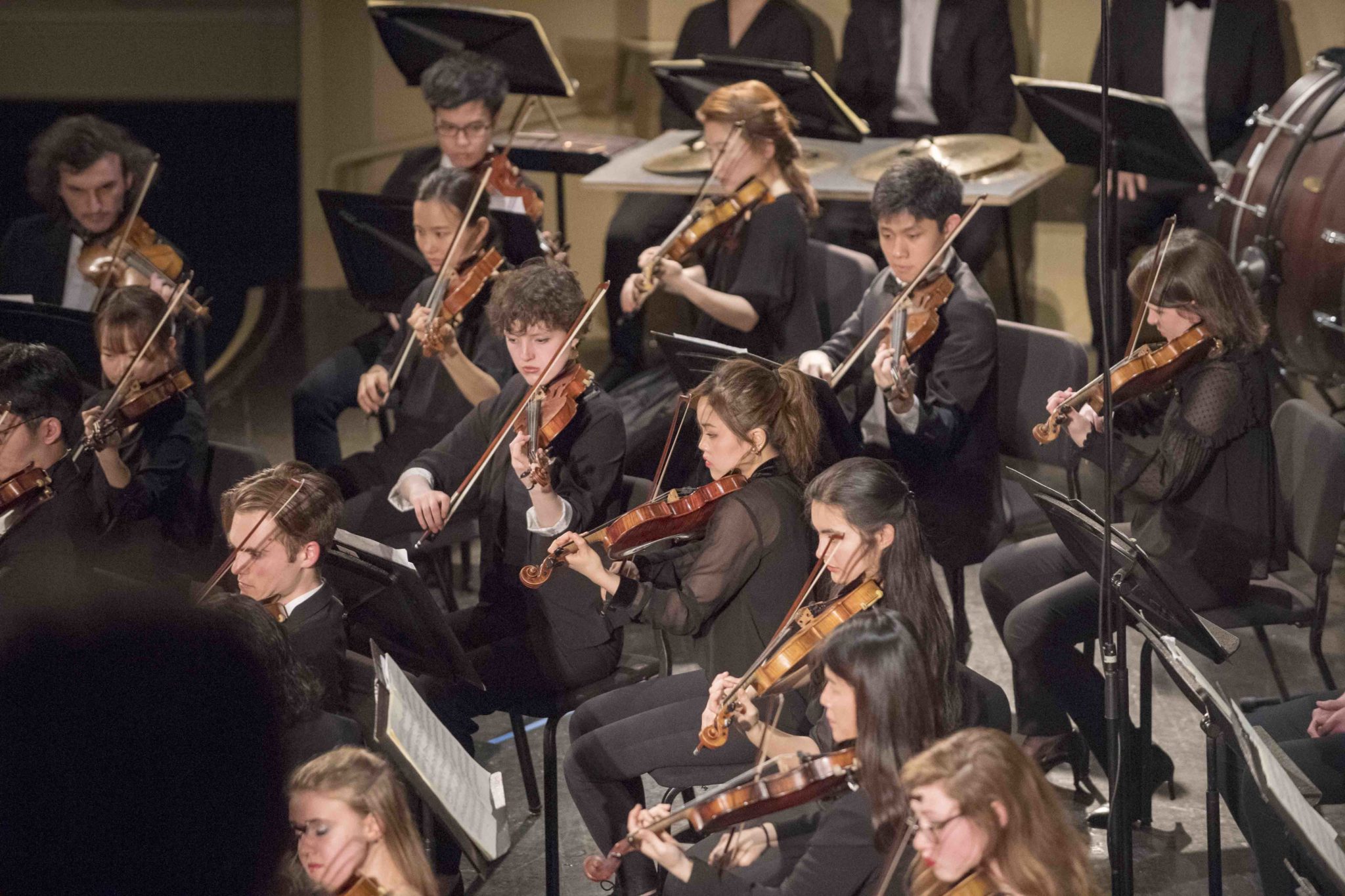
Courtesy of Matthew Fried
Many aspiring composers struggle to find a full orchestra to perform their completed works. Yet, for some Yale School of Music compositional students, they will have the opportunity to hear the Yale Philharmonia perform their pieces this Thursday at the New Music for Orchestra concert at 7:30 p.m. in Woolsey Hall. The concert will be guest conducted by Julian Pellicano MUS ’07.
“It is not so often that young composers are able to write for orchestra and have their pieces rehearsed and performed at a high level,” said School of Music Faculty composer and New Music New Haven Artistic Director Hannah Lash. “This opportunity is one that most of the composers here really look forward to taking advantage of.”
In preparation for this annual concert, second-year student composers write short pieces, showcasing their exploration of orchestral color. While some students have experience in orchestral composition, for many, this concert marks the first time a full orchestra will perform their work.
The seven pieces premiering in Woolsey Hall on Thursday night comprise seven distinct compositional voices and musical approaches. The concert will feature compositions by Tanner Porter MUS ’19, Ryan Lindveit MUS ’19, Aaron Levin MUS ’19, Grant Luhmann MUS ’19, Frances Pollock MUS ’19, Anteo Fabris MUS ’19 and Nate May MUS ’23.
“This is a pretty auspicious moment for these composers,” said Yale School of Music Communications Officer David Brensilver. “This is good for the [composers] obviously, and it’s also instructive for the Phil to play music by their contemporaries, being written right now.”
According to Brensilver, the student composers sit in during rehearsals with the Philharmonia to hear the pieces come together and “make adjustments on the fly.”
But the back-and-forth process of rehearsing and editing between the orchestra and composer can be an arduous process, the student composers noted.
“It’s really hard for me to be cool at rehearsals because there is so much you want to say — mostly, you just want to explode because finally your silent music is being heard,” said Fabris. “But you can’t because you need to keep rehearsing, and you’re sitting right in front of the orchestra the entire time, which can be ultra awkward.”
Fabris’ piece, titled “Contrapasso,” is dedicated to incarcerated men and women.
Despite the challenging process, the students consider this concert a unique opportunity to hear their pieces performed by the Philharmonia.
“One of the things that’s exciting about this concert is that we haven’t been commissioned to write this music,” said May. “We’re not sharing a program with ‘Beethoven Nine,’ and we’re not expecting a critic from the Times to be there.”
May’s piece called “Plastic Action” is written for “orchestra and noise.” The piece uses recordings he made of everyday sounds — including an escalator, autumn leaves and a bonfire — and “[distorts] them beyond recognition.”
“The orchestra has such a seductive power, which for me comes from its coloristic possibility, its dynamic range and its incredible agility, but its history and centrality in classical music culture add to the intensity of it,” said May.
In his composition, he harnesses the collective power of a full orchestra, which distinguishes this piece from his solo or chamber music compositions.
“My colleagues and I always look forward to watching our students explore the orchestral medium,” said Lash. “I hope our audience will share the excitement with us and our students of hearing something entirely new — hearing composers try new things, take risks, search for something personal.”
Levin hopes that when audiences listen to his composition, called “In Between,” they will “get a sense of how these characters work together, or against each other, in some kind of musical narrative.”
The process of creating new works is a personal experience for many composers.
Lindveit’s orchestral composition, titled “Pray Away,” is a musical metaphor “unpeeling layers of personal shame in order to find authenticity.” He holds a belief that “music can be a vehicle for emotional transformation” and hopes that the audience can experience this process together.
Lindveit said that composition, especially for orchestra, is a “painstakingly detailed process that demands a substantial amount of focused solitude” from the composer.
Pollock will present two selections from the vocal suite “This American Life.” According to Pollock, these pieces function as an encapsulation of her “obsession with the ordinary” and “the moments in between events,” in which she said “the majority of life inevitably happen.”
In her composition “Here Comes the Rain,” Porter assigns musical components to a short poem she wrote with the same title. Her work functions as “a piece which hopes for relief,” written during wildfires in her home state of California.
“The Phil is such a great ensemble itself, and I think it’s a huge opportunity for all involved — the composers, the orchestra and the audience,” Brensilver said.
The New Music for Orchestra performance will take place on Thursday at 7:30 p.m.
Allison Park | allison.park@yale.edu







